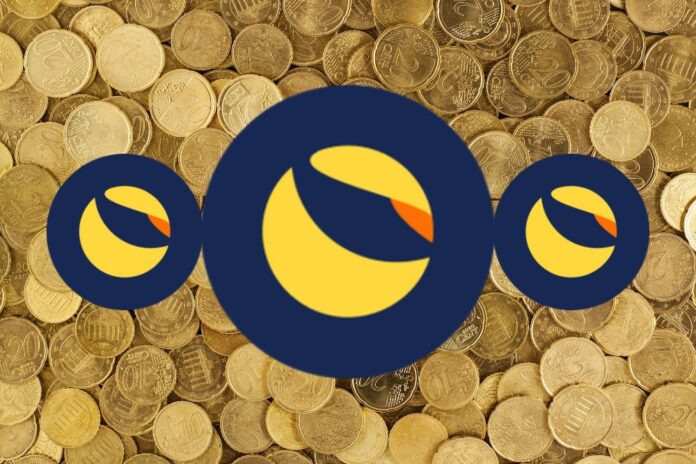It appears that the Terra Classic community has rejected a spending proposal to fund the USTC Quant team for the second consecutive month. The proposal received too many “No with veto” votes from community members.
Although 45% of the community voted “Yes,” 43% voted “No with veto” and 11% voted “No,” resulting in the rejection of the spending proposal. Notably, some validators such as Lunanauts, PFC, StakeBin, and Coinpayu voted in favor of the proposal, while others like SolidVote, Vegas Node, and JESUSisLORD rejected it.
Read Also: State-of-the-art Machine Learning System Sets Terra Classic (LUNC) Price For August 31, 2023
The Quant Team is seeking 285 million LUNC (approximately $20,000) in funding for August to enhance a tool for the USTC Incremental Repeg Buybacks & Staking Swaps algorithm.
Additionally, they intend to identify sources of “zombie USTC” to burn without requiring additional funding. Currently, the team is preparing for the 800 million USTC related to the Ozone protocol, which the Terra Classic community has agreed to incarcerate.
Although the LUNC price has been falling and failed to stay above the $0.00009 level, the recent decline has led to an increase in the LUNC burn rate.
StakeBin data shows a significant rise in the Terra Classic burn rate from August 15. Presently, LUNC is trading at $0.00006658, experiencing about a 5% increase over the past 24 hours.
On the other hand, the USTC price has also recovered by 3% in the last 24 hours, currently trading at $0.012. However, the trading volume for USTC has decreased during this period.
We are on twitter, follow us to connect with us :- @TimesTabloid1
— TimesTabloid (@TimesTabloid1) July 15, 2023
Read Also: LUNC to $1 Target on Course as Binance Discusses USTC Repeg Initiative with Terra Classic Team
Concerns over Spending Proposal Rejection
The rejection of the spending proposal by the Terra Classic community has raised concerns among stakeholders. While there were validators and community members supporting the proposal, the majority felt that it did not meet their expectations or requirements.
This decision may have implications for the development and progress of the USTC Quant Team’s initiatives, as well as the overall trajectory of the Terra Classic ecosystem. It remains to be seen how this rejection will impact future funding proposals and the community’s willingness to support them.
Some community members argue that rejecting the proposal may hinder the advancement of the USTC Incremental Repeg Buybacks & Staking Swaps algorithm, which is aimed at improving stability and efficiency within the ecosystem.
On the other hand, those who opposed the proposal may have had valid concerns about the allocation of funds, the necessity of additional funding, or alternative approaches to achieving the desired objectives.
Read Also: Terra Classic (LUNC) Governance and Decentralization Proposal Successfully Approved
The result of this vote highlights the decentralized and community-driven nature of Terra Classic (LUNC), where decisions are made collectively based on the opinions and perspectives of various stakeholders.
With the recent increase in the LUNC burn rate due to the falling prices, it remains to be seen whether this will have a positive impact on the sentiment within the community. The rise in burn rate may indicate increased token scarcity, which could potentially lead to higher demand and value in the long run.
However, it is important to monitor the market closely and assess the impact of price volatility on the overall ecosystem and the stakeholders involved, including investors, validators, and users alike.
Follow us on Twitter, Facebook, Telegram, and Google News


